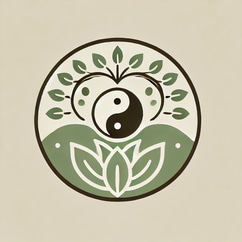Deep Sleep vs. Cat Naps: Everything You Need to Know to Sleep Better
Discover the Secrets of Sleep and Learn How to Improve the Quality of Your Rest with Practical, Science-Based Tips
Living in Harmony Team
2/21/20254 min read


Sleep is one of the most essential functions of the human body, yet we often neglect its importance. Between the hustle and bustle of daily life, commitments, and tight deadlines, getting good sleep can seem like a luxury. However, the quality of sleep directly impacts our physical, mental, and emotional health. In this article, we’ll explore everything about deep sleep, strategic naps, and how you can improve your rest habits to live better. Get ready to learn practical, science-backed tips that will transform your nights!
---
### 1. Why Is Sleep So Important?
Before diving into the differences between deep sleep and naps, it’s crucial to understand why sleep is so vital for our well-being. During sleep, the body performs several vital functions, such as:
- Muscle and cellular recovery: Deep sleep is essential for repairing tissues and strengthening the immune system.
- Memory consolidation: While we sleep, the brain processes information learned during the day, helping to consolidate memories.
- Hormonal regulation: Sleep influences hormones related to appetite, stress, and even happiness.
According to the National Sleep Foundation, adults need 7 to 9 hours of sleep per night to function optimally. However, data shows that about 35% of adults sleep less than the recommended amount ([Source](https://www.sleepfoundation.org)).
---
### 2. Deep Sleep vs. Naps: Which Is Better?
Many people wonder: "Is it better to sleep 8 hours straight or take several short naps throughout the day?" Let’s explore the differences between these two approaches.
#### 2.1. Deep Sleep: The Pillar of Restorative Rest
Deep sleep, also known as slow-wave sleep (NREM), occurs mainly during the first few hours of the night. It’s during this phase that the body performs most of its recovery functions, such as:
- Muscle repair and cellular regeneration.
- Strengthening the immune system.
- Releasing growth hormones.
Sleeping 7 to 9 uninterrupted hours allows you to go through all sleep cycles, including REM sleep (rapid eye movement), which is essential for mental and emotional health.
#### 2.2. Naps: A Temporary Solution
Naps, especially those lasting 20 to 30 minutes, can be useful for quickly regaining energy. However, they don’t replace a good night's sleep. Studies show that excessive or poorly planned naps can disrupt the circadian rhythm, making nighttime sleep more difficult ([Source](https://www.health.harvard.edu)).
If you need a nap, follow these tips:
- Limit it to 20-30 minutes.
- Avoid napping after 4 PM.
- Create a quiet and dark environment.
---
### 3. Sleep Myths: What Really Works?
There are many myths about sleep that can confuse people. Let’s debunk some of the most common ones:
#### Myth 1: "I Can Catch Up on Lost Sleep Over the Weekend"
While sleeping more on weekends may help temporarily, it doesn’t fully compensate for chronic sleep deprivation. Additionally, drastically changing your sleep schedule can disrupt your circadian rhythm.
#### Myth 2: "Alcohol Helps Me Sleep Better"
Although alcohol may initially induce sleep, it interferes with sleep quality, reducing time spent in deep sleep and increasing fragmentation.
#### Myth 3: "The More Time I Spend in Bed, the Better"
Spending too much time in bed without actually sleeping can lead to insomnia. It’s important to associate your bed only with sleep and relaxation.
---
### 4. How to Create a Relaxing Sleep Routine
A consistent bedtime routine can work wonders for improving sleep quality. Here are some practical tips:
#### 4.1. Set a Fixed Schedule
Go to bed and wake up at the same time every day, even on weekends. This helps regulate your biological clock.
#### 4.2. Create a Pre-Sleep Ritual
Relaxing activities, such as reading a book, taking a warm bath, or practicing meditation, can signal to your brain that it’s time to wind down.
#### 4.3. Avoid Screens Before Bed
The blue light emitted by phones, tablets, and computers can interfere with melatonin production, the sleep hormone. Try turning off devices at least 1 hour before bed.
#### 4.4. Optimize Your Environment
A dark, quiet, and cool bedroom is ideal for good sleep. Consider investing in blackout curtains, earplugs, or a humidifier.
---
### 5. Challenge Yourself: Try the "Perfect Sleep Challenge"
To put all this into practice, I propose a fun and effective challenge: the "Perfect Sleep Challenge"! For 7 days, follow these steps:
1. Set a fixed schedule: Go to bed and wake up at the same time every day.
2. Create a pre-sleep routine: Read a book or do relaxing stretches.
3. Avoid screens: Turn off electronic devices 1 hour before bed.
4. Track your progress: Note how you feel upon waking and during the day.
At the end of the challenge, evaluate how these changes have impacted your energy, mood, and productivity.
---
### 6. Conclusion: Invest in Your Sleep to Transform Your Life
Getting good sleep isn’t just about comfort—it’s a vital necessity for health and well-being. By prioritizing deep sleep, avoiding myths, and adopting a consistent routine, you’re investing in a healthier, more productive, and balanced life.
Remember: small changes can bring big results. Start today by applying the tips from this article and take part in the "Perfect Sleep Challenge". Share your experience in the comments—I’d love to hear how you’re doing!
---
### References
1. National Sleep Foundation. (2023). How Much Sleep Do We Really Need? Available at: [www.sleepfoundation.org](https://www.sleepfoundation.org)
2. Harvard Health Publishing. (2023). The Importance of Sleep for Health. Available at: [www.health.harvard.edu](https://www.health.harvard.edu)
3. American Academy of Sleep Medicine. (2023). Sleep and Wellness: The Science Behind Restorative Rest. Available at: [www.aasm.org](https://www.aasm.org)
---
Want to know more about living in balance? Follow Live in Harmony and discover new ways to care for your body and mind. 😊
Living in Harmony - @primeconexao
Tips for a balanced lifestyle.
Prime Conection
contact@primeconexao
© 2024. All rights reserved.
primeconexao360@gmail.com
